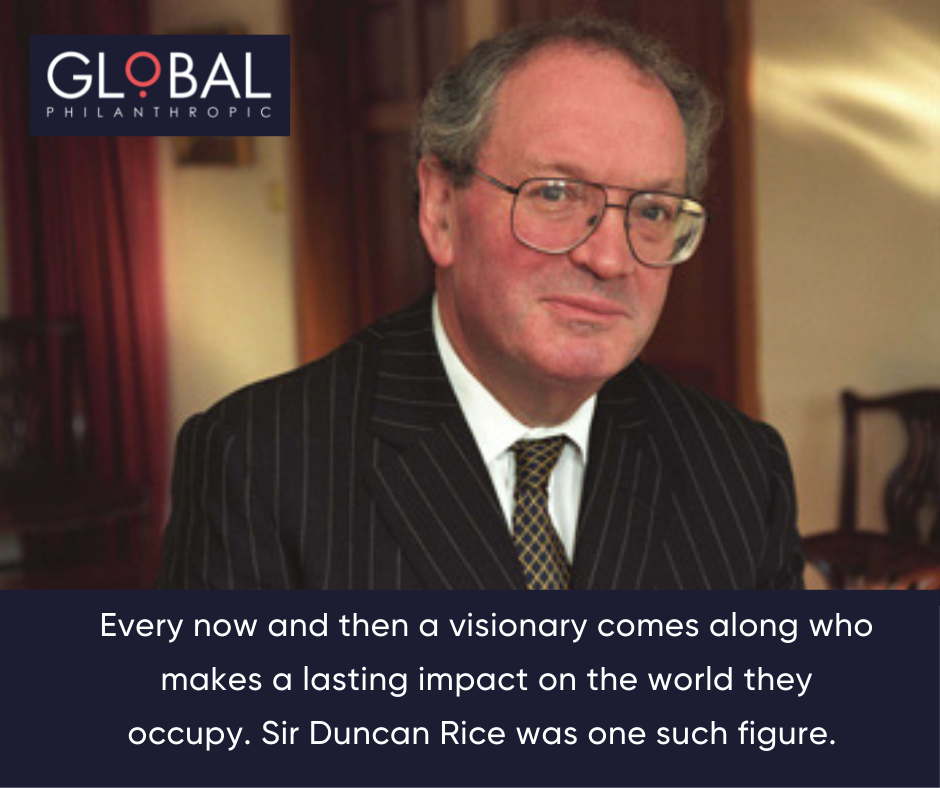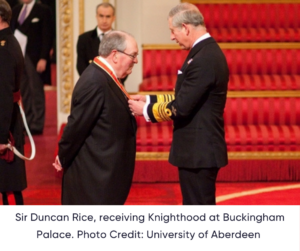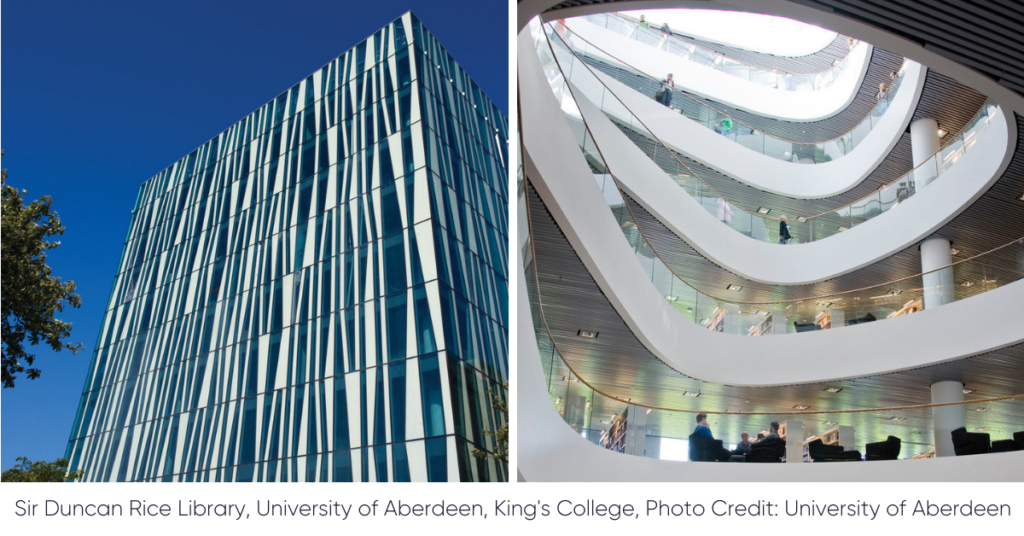
Every now and then a visionary comes along who makes a lasting impact on the world they occupy. Sir Duncan Rice was one such figure.
Sir Duncan, who sadly passed away on February 3, aged 79, served as chairman of Global Philanthropic from 2014 to 2016, and left an indelible mark on education and philanthropy in the UK and far beyond its shores.
As principal and vice-chancellor of the University of Aberdeen from 1996 to 2010, he launched the Sixth Century Campaign in 2000 to raise £150million.
“Duncan was a pioneer and the first to make fundraising a strategic priority for a UK university outside Oxford and Cambridge,” says Ben Morton Wright, President and Group CEO, Global Philanthropic.
“He was a great storyteller. He was passionate about what he wanted to raise money for, and could visualise where philanthropy could get you and wasn’t going to accept second best.
“He was a formidable figure, who would always lead from the front and had a great intellectual capacity.”
Ben worked with Sir Duncan as executive director of development at Aberdeen before going on to establish Global Philanthropic in 2002 and later inviting him to become chair of the European business.
“He was very good at interacting with people. If he walked into a room, you knew that he was there,” Ben continued.
“He brought a great stature to our business at Global Philanthropic at an important time and saw the role of chair as a way to promote philanthropy in a wider context which really fitted with our vision.”
 Knighted in 2009 for services to education, Sir Duncan was chair of the Council for Advancement and Support of Education (Europe) and served on the Heritage Lottery Fund for Scotland among several public service appointments.
Knighted in 2009 for services to education, Sir Duncan was chair of the Council for Advancement and Support of Education (Europe) and served on the Heritage Lottery Fund for Scotland among several public service appointments.
He was full of innovative fundraising ideas including the giving of shares and was instrumental in creating the first ever survey of philanthropy in higher education that became known as the Ross group survey.
On one occasion Ben asked Sir Duncan for his advice on how to pick a good school for his daughters. “If the pupils look you in the eye,” he said, “that will tell you a lot.”
Malcolm Hutton, Honorary President of Global Philanthropic, remembers Sir Duncan as having a “huge vision” for the university and “endless energy”.
“His ability to raise money gave great encouragement to others,” says Malcolm, a former board member of the University of Aberdeen Development Trust.
“One of the most wonderful things he achieved was improving the rating of the university [in the league tables] together with the successful fundraising campaign culminating in the fabulous new library named after him.”
When he did get time to relax, Sir Duncan liked salmon fishing. “As a very keen fisher myself, I managed to entice him away from his desk and come fishing on the Dee,” Malcolm added.
“Neither of us sadly caught a salmon but he wrote me a wonderful letter saying he had so much enjoyed his day.”
Sir Duncan was born in Aberdeen and educated at Aberdeen Grammar School and the University of Aberdeen where he graduated with a first in history in 1964 followed by a PhD from the University of Edinburgh in 1969.
His research interests in the anti-slavery movement took him to America to teach at Yale and Hamilton College in New York State.
But it was his time at New York University where Sir Duncan carved out a reputation as an academic administrator and fundraiser.
As dean of arts and sciences and later vice-chancellor of NYU he helped raise more than $1billion in ten years bringing it to international attention.
Initiatives including NYU’s Glucksman Ireland House – named after the New York philanthropists Lew and Loretta Glucksman – became an exemplar for building relationships between the scholarly, cultural and political worlds.
Sir Duncan returned to Scotland and the University of Aberdeen in 1996 until his retirement where he revitalised Aberdeen from a far-sighted reform of the curriculum to fundraising campaigns and a rise in international student numbers.

In 2012, the Queen opened the University’s new £57million Sir Duncan Rice Library which gleams in the Northern light, and fittingly marks the life of a remarkable man.
He is survived by the former banker Dame Susan Rice, and their children, James, Samuel and Jane.


